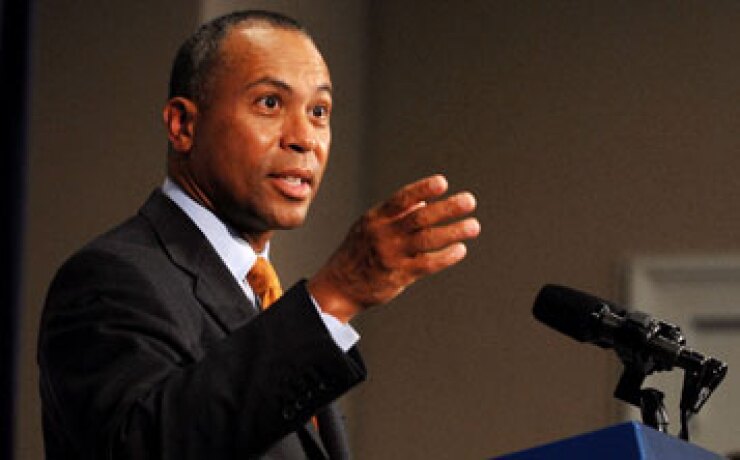
Controversy over the Massachusetts Bay Transportation Authority retirement fund resurfaced after Gov. Deval Patrick vetoed a line item in the $36.5 billion state budget that would have removed the fund and its board from the public records law.
"This veto preserves an important tool to promote a more transparent and open government," Patrick said. He also vetoed $16.1 million of spending, including several earmarks at the Department of Correction, the Executive Office for Administration and Finance, and the Department of Conservation and Recreation.
The secretive practices of the $1.6 billion MBTA retirement fund, which manages the retirement accounts of Greater Boston transit system employees and operates separately from the MBTA, have repeatedly come under harsh glare from lawmakers and transparency advocates.
Fund managers have refused to release pension data in the face of the state sunshine law that was part of a 2009 overhaul law that put the MBTA under the state Department of Transportation. Last November the fund admitted it lost a $25 million investment in an apparent Ponzi scheme through a hedge fund run by bankrupt Fletcher Asset Management.
The MBTA, not the fund, released some pension data in 2013 that showed 17% of 6,359 listed people retired while in their 40s.
The fund's attorneys say it is a private trust, backed by state Supreme Judicial Court rulings that the fund is not a state agency. Critics, however, say the fund is de-facto public, given that taxpayers funneled $1.1 billion to the authority in fiscal 2013 and that the MBTA contributed $55 million last year toward pension costs.
Boston free-market think tank Pioneer Institute
"More radical measures are needed in order to ensure that current MBTA employees' pensions will be there when they retire," senior fellow on finance Iliya Atanasov wrote in a policy brief that said without taxpayer support, the fund would go bust between 2024 and 2036.
Attorney General Martha Coakley, a Democratic candidate for governor, urged the fund's board to increase transparency. "Disconcerting reports of losses of a $25 million investment by the fund have been compounded by the failure to disclose the loss in a timely manner and revelations of insufficient safeguards to protect against conflicts of interest,"
Moody's Investors Service rates Massachusetts' general obligation bonds Aa1. Fitch Ratings and Standard & Poor's rate them AA-plus.





